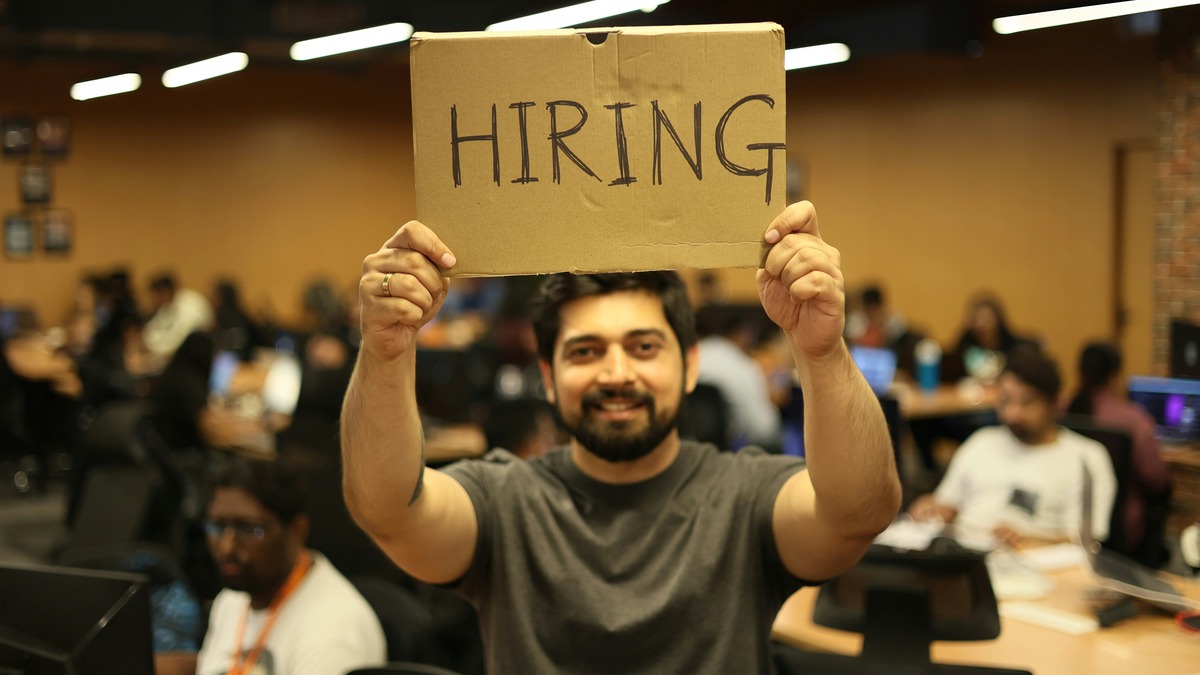As artificial intelligence (AI) continues to evolve, it’s reshaping the way we work—and the way we hire. But some employers are still wondering: Is it cheating if job candidates use AI during interviews? The short answer is: No. In fact, companies that resist AI could be missing out on top talent and holding themselves back from the future of work.
According to new Outhire research, these aren’t the candidates companies should reject – they’re the ones they should hire. The twist? While employers worry about “AI cheating,” these tech-savvy candidates are using interviews to identify which companies understand modern work.
“Smart candidates are using AI to show exactly how they’ll work in the real world,” says Outhire Co-Founder Will Russell. “Then they ask which AI tools they’ll get to use on the job – and that’s where many companies fail the interview.”
Look at software developers,” Russell continues. “They’re walking into interviews using Windsurf, an AI that helps write and fix code. Then they find out the company they’re interviewing with doesn’t even have basic AI tools. It’s like showing up at a law firm and finding they’re still using typewriters and paper files.”
AI in Interviews: A tool for success, not deception
It’s easy to view AI as a shortcut, but that’s missing the point. AI isn’t about replacing human skills—it’s about enhancing them. When candidates use AI in interviews, they’re not cheating—they’re showing how they can leverage modern tools to work smarter. AI helps them break down tough questions, structure better answers, and fact-check in real-time, just like they would do in the workplace.
Think of it this way: businesses use AI to optimize customer service, automate tasks, and analyse data. Candidates are now using AI in interviews to present their best selves. Instead of fearing these tools, employers should embrace them as an opportunity to see how candidates can thrive in a tech-driven environment.
Tech-savvy candidates are here
The truth is, AI is already part of the workforce—and candidates need to be prepared for it. Whether it’s coding, marketing, or data analysis, AI is becoming a necessary skill in almost every industry. By allowing AI in interviews, companies give candidates the chance to demonstrate their readiness for the tech-heavy roles they’ll take on. Smart candidates are already using AI to ace their interviews.
With AI, they can structure their responses more effectively, verify facts instantly, and communicate their experience clearly. In a competitive job market, where many candidates are already comfortable using these tools, companies that ban AI in interviews risk falling behind.
Candidates are testing employers too
It’s not just about employers assessing candidates anymore. Candidates are now using AI to assess employers. They’re asking, “Which AI tools will I get to use at work?” If a company doesn’t even have basic AI tools, it sends a clear message that they’re stuck in the past. Today’s top candidates want to work for companies that are forward-thinking and embrace technology.
If a business is still holding back from using AI, it risks turning away the talent that’s already moving into the future. The tables have turned—candidates are deciding if a company is tech-savvy enough to be their future workplace.
AI can promote fairer hiring practices
AI also has the power to make hiring more fair. Job interviews are often subject to biases—whether it’s about how well someone speaks or how quickly they think on their feet. AI can help eliminate those biases by giving candidates a chance to present their best, most polished selves.
This gives employers a better chance to focus on what really matters: skills and experience. For candidates from underrepresented backgrounds, AI can level the playing field, making it easier for them to compete based on their qualifications, not their interview performance. Embracing AI in hiring sends a message that a company is committed to fairness and inclusivity.
AI in hiring
For businesses to attract the best talent, they need to foster a culture of innovation. This means embracing AI not just in interviews but across operations. Companies that allow AI in interviews send a message that they are open to change and ready for the future. On the other hand, companies that reject AI risk appearing outdated and out of touch.
Younger generations are entering the workforce with a deep familiarity with AI, and they expect to work for companies that embrace technology. If your company isn’t integrating AI, top candidates might look elsewhere.
Catch up or fall behind
The message is clear: companies that don’t keep up with AI are at risk of losing out on the best talent. AI is not just a passing trend; it’s the future of work. Companies that embrace AI—both in hiring and throughout their operations—will be best positioned to attract and retain top talent. If you’re still hesitating to let candidates use AI in interviews, it’s time to rethink your approach. Rather than seeing it as cheating, view it as an opportunity to see how candidates will navigate the tech-driven workplace of tomorrow.
After all, if you’re not embracing AI in hiring, how can you expect to succeed in using it in your day-to-day operations? Ultimately, the future of work belongs to those who are ready to evolve and adapt. Companies that resist change will find themselves left behind as the best candidates seek out workplaces that are just as forward-thinking as they are.
Keep up to date with our stories on LinkedIn, Twitter, Facebook and Instagram.
SMEs, it’s time to stop fearing AI in hiring and start using it to find your next great hire. Tech, AI, hiring Dynamic Business




